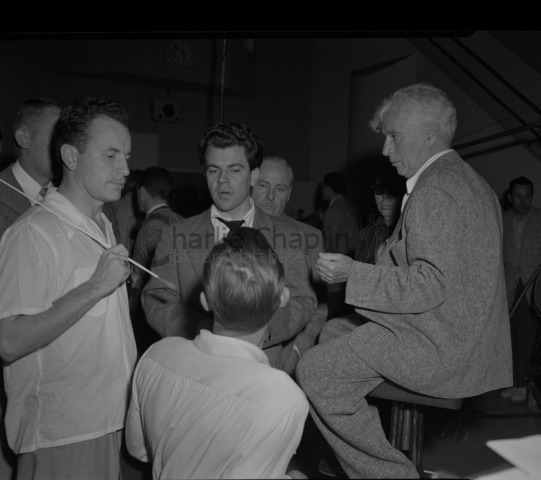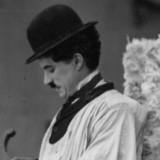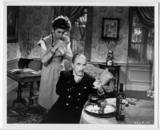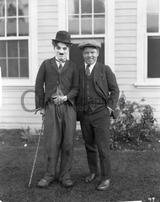Extracts from the typescript of "Hollywood Chaplin"
by Henry Gris, United Press staff correspondent on the set of Limelight, 1952
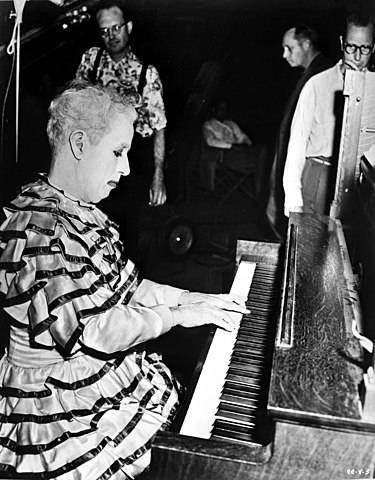
Charlie Chaplin was awakened by the sound of music. The music was within him and he thought he would never give birth to anything more beautiful. The missing melody for the finale! But the horrible possibility it would leave him before he reached the recording machine in the sunroom made him break out in cold sweat.
He slipped into his robe, all the time humming frantically, and stole downstairs to the machine by the side of the Steinway. He turned it on. The reels of magnetic tape spinning, he sang the melody into the microphone. “La-Di-Di –Di –Di…” His fingers groping across the keyboard recaptured the tune too, and held it. This went on for a quarter hour, or so. Finally, satisfied he had saved the melody for posterity, he stole back to the bedroom, making sure he would not wake up the household. […]
One day, at work with his arranger Ray Rasch, […] writing the music for one of the key scenes, Rasch transcribing into music Chaplin’s humming, and Chaplin expressing as best he could the melody that sung inside him, before long Rasch was going through the most complicated calisthenics, trying to reproduce on the piano the instruments Chaplin had in mind. “Now the French horns,” he ordered, “Where are the French horns?” A moment later, “Where is the counter melody?” When he stomped “Where is the harp?” Rasch stopped abruptly, and looked up. “There is no harp here”, he said, “this is only a piano”. Chaplin shuddered and his eyes winked as though he had just been slapped. It was as if he had been mistreated by crude reality that wouldn’t let a piano be anything else. […]
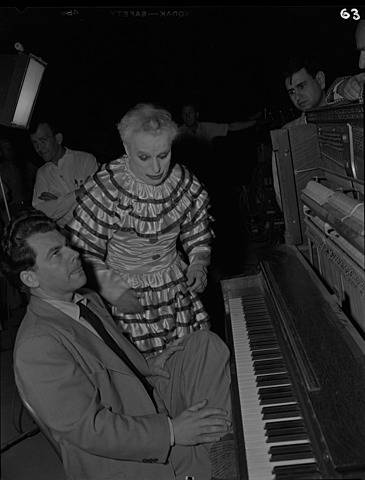
Chaplin can and does write all the dialogue, as he can and does do everything else around a movie, but he cannot write music. If only he could master this too. Time and again there have come the attempts to close this only gap in the Chaplin genius. “It’s a pity too” Rasch says “because he feels music so deeply. I’ve tried to teach him. I’d suggest he use the full keyboard, pointing to the simplicity of the scale. I’d say, he for one could master it. He would listen. Then he would say, “Ray, I cannot do it. You want me to mechanize my thoughts. This is quite impossible!” […]
To Rasch, Chaplin’s musical genius is that of organized revolt against conventions combined with perfect feeling for the real thing. “You think first, it’s musically wrong, but he insists it can be done, and eventually you find a way of doing it, only to agree with him. What he hears without knowing is what a Stravinsky has introduced into modern music, for effect with knowledge, things like any number of tempos intermixed, for instance. He doesn’t know, just feels, but it’s fabulous!”
Rasch believes that Chaplin’s genius is closely connected with his inner hearing, the way he hears the world, his eyes closed.
